
R Dean Davenport
ATTORNEY AT LAW
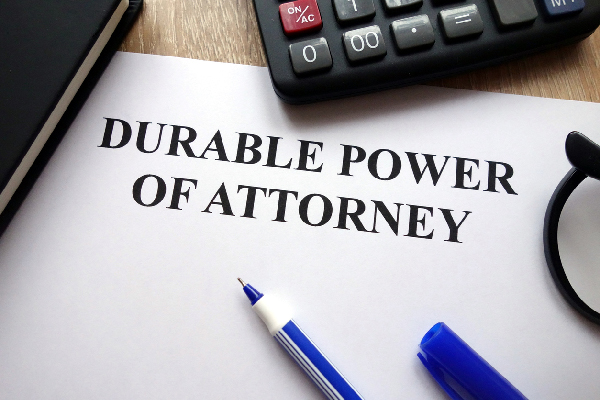
During the estate planning process, a variety of important decisions exist about how you want your affairs handled. However, take a moment to think about what would happen should you become incapacitated and cannot make decisions for yourself. This is where having a durable power of attorney in your estate plan comes into play. A durable power of attorney is an essential part of any estate plan. Indeed, this document allows you to designate someone else to act on your behalf if you become incapacitated.
A durable power of attorney allows you --the "principal"-- to name an "attorney-in-fact" or "agent" to make financial or healthcare decisions for you. Creating this attorney helps you to prepare for a medical emergency. With a this attorney, feel rest assured knowing that you have someone you trust by your side. However, you may be unfamiliar with what a durable power of attorney is or why having one is essential. To help you make an informed decision, here are answers to the most frequently asked questions about durable powers of attorney.
Why Is a Durable Power of Attorney Important?
Upon learning what a durable power of attorney is, you may find yourself wondering whether this is something you really need to include in your estate plan. However, a durable power of attorney is just as essential a component in the estate planning process as a will. While you never want to imagine yourself falling ill, unexpected events can happen at any time. Should you fall ill or become incapacitated, having a durable power of attorney ensures that someone you trust can make decisions for you. Not only will this ensure that your affairs are handled as you would have wished, but it removes stress and confusion.
Without a durable power of attorney, no one can represent you should you become incapacitated unless a court appoints a conservator or guardian. However, that court process takes time and can be costly and stressful for your loved ones, and a judge may ultimately choose someone you do not trust to be in charge of your affairs. Additionally, this process could cost critical time when important decisions regarding your care need to be made. Thusly, this ensures that you have proper care and your wishes are followed.
What Makes a Power of Attorney Durable?
While people often use the terms "Power of Attorney" and "Durable Power of Attorney" interchangeably, these are different documents. General powers of attorney, are generally limited in scope and are automatically revoked if the principal becomes incapacitated. In order to ensure that your agent makes decisions for you, you need a this attorney in effect. The agent continuing to act on the principal's behalf makes a power of attorney "durable".
Who Should I Name as My Agent?
One of the most daunting decisions is naming an agent to handle your medical or financial affairs. Since your agent has a considerable amount of power to make decisions on your behalf, it is important that you choose someone who you can trust to act in your best interest, and who knows how you would want your affairs to be handled.
It is not uncommon for people to designate two co-agents to split the duties assigned to them. This reduces their burden, and the agents can keep each other in check. Oftentimes, people will choose two of their adult children or other close family members to be their agents. Make sure that you pick someone you trust wholeheartedly and that you make your agent aware of both their responsibilities under the durable power of attorney and what your wishes are should you become incapacitated.
What Happens to My Power of Attorney When I Die?
People often wonder what happens to their power of attorney when they die. In fact, there is often a misconception that one's agent can continue to act on a person's behalf when they die. However, this is not the case. In reality, a durable power of attorney is only valid during the lifetime of the principal. Once you die, this document ceases to function. Then, your last will and testament and/or other estate planning documents come into play. Once you die, your agent ceases to have any authority or decision-making powers. Powers of attorney and a will can then be seen as a complementary and equally important estate planning documents, as they help to ensure that someone you trust is able to handle your affairs both in life and in death.
Do I Need More Than One Durable Power of Attorney?
Most likely, yes. You will likely need separate power of attorney documents for medical and financial power of attorney. This can, then, allow you to name separate agents in each document. Of course, consult an estate planning attorney to help you decide what documents you need. Thus, you ensure that your affairs are looked after should you become incapacitated.
Conclusion
Feel free to contact us to learn more about the importance of including a durable power of attorney document in your estate plan as well as for advice on the estate planning process.
For more information please request a copy of our Legal Services Schedule (PDF format).
![]()

When creating your estate plan, you need to think about who you want your beneficiaries to be and how you will divide your assets. Of course, when thinking about your beneficiaries, it is likely that family and friends will come to mind first. However, consider adding a charity as a beneficiary to ensure that the tradition of giving continues after your death. While many might not consider giving to a charity in their estate plan, it is a great way to give back. In fact, many people decide to give a portion of their estate to a church, food bank, or medical research. If you are considering including charitable giving into your estate plan, you may not know where to start. Keep reading for a look at answers to some of the most frequently asked questions we receive about charitable giving.
What Charity Should I Donate To?
While including charitable giving in your estate plan may sound appealing, you may find yourself wondering what charity to choose. While this may be an easy decision if there is an organization you have worked closely with over the years, you are not alone if you are new to charitable giving. If you do not have much philanthropic experience, take some time to think about where your passions lie. For instance, is there an issue in your community that concerns you? Is there a particular illness you wish had better research funding? Is there an organization that helped you when you were in a difficult place? Considering these questions can help you to decide where you want to give back.
The great thing is that you don't necessarily have to limit your donation to a single charity. However, before you incorporate charitable giving into your estate plan, research potential charities. Thus, ensuring that they are legitimate and that you know exactly what your donation will be funding.
Should I Include My Family in the Decision Process?
Unless you have a specific charity in mind, involve your family in the decision-making process. Call a family meeting to discuss the fact that you'd like to include charitable giving into your estate plan. Explain why charitable giving is important to you, and ask for input on what charity your loved ones. Doing so can have multiple benefits in addition to helping you make this important decision.
Having this discussion prepares your loved ones for your plan to give a portion of your estate to charity. Thus, reducing their potential inheritance. However, including your family in the decision process will prevent this from coming as a surprise later on, and being involved in choosing a charity can give them a sense of fulfillment at having been part of the family's philanthropic endeavors. This may even get your beneficiaries thinking about their own charitable giving and whether they should consider continuing the family legacy you started by giving to the same charity in their estate plans.
Financial Benefits of Charitable Giving?
You may find yourself wondering if there are any financial benefits to including charitable giving. After all, if you donated to a charity while you were still alive, you would likely receive some kind of tax benefits. Similarly, including charitable giving into your estate plan can have tax benefits by decreasing your estate's tax liabilities. This can actually help you to maximize the final value of your estate for your family. However, it is important to remember that certain types of donations provide more advantageous tax benefits than others, so it can be helpful to work with an experienced estate planning attorney who can help you find the best way to incorporate charitable giving into your estate plan.
How Do I Incorporate Charitable Giving Into My Estate Plan?

Once you decide on a charity (or charities) that you would like to include in your estate plan, you may find yourself wondering how you would include charitable giving in your estate plan. How can you ensure that a portion of your estate goes to your desired charity after you are gone? The fact is that there are several options for including charitable giving into an estate plan. Here is a look at just a few of the most popular options.
Gift Through a Will or Trust
A simple way to give to a charity at death is to name them as a beneficiary in your will. This can either be in the form of cash or physical assets such as real estate, vehicles, or art. Naming a charity as a beneficiary reduces the value of your estate, which reduces your estate tax bill (when applicable). Just like any other asset in your estate, you can stipulate in your estate plan how and when designated assets are distributed to charities, and your trustee or executor will be responsible for overseeing this process.
Donate Your Retirement Account
Another great way to give to charity in your estate plan would be to designate your preferred charity as the beneficiary for your retirement plan. The fact is that retirement accounts are some of the highest-taxed assets in any estate. This makes them a great option for charitable giving, as charities do not have to pay taxes on these gifts. Giving to charity is then a great use for your retirement plan after your death, as not only will this money likely avoid being taxed, but your estate may also receive a tax deduction for this gift.
Create a Family Foundation
For those who want to donate substantial funds to ongoing charity work, create a family foundation. Set up a foundation during your life and oversee various charitable works. Have your family continue to support the foundation after your death. This is a great way to create a family legacy that bears your name for generations to come.
Learn More About Charitable Giving in an Estate Plan
Given that there are a variety of ways in which you can include philanthropic giving into your estate plan, you may feel overwhelmed trying to decide what option will work best for your family. This is where it can be advantageous to partner with an estate planning attorney who can help walk you through your options. An experienced attorney helps you decide the best way to donate based on what you are hoping to achieve.
Feel free to contact us to learn more about incorporating charitable giving into your estate plan.
For more information please request a copy of our Legal Services Schedule (PDF format).
![]()
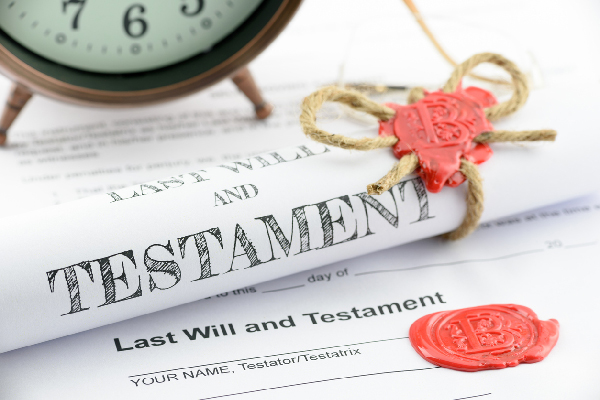
If you have recently begun the estate planning process and are considering incorporating a will, you may find yourself worrying that your will could be contested. While it is rare for a will to be challenged in court, it is possible. A successful will contest could mean that all of your estate planning was for naught. As you begin the process of drafting your will, it is then critical that you take precautions to protect it. This will help to ensure that your final wishes are upheld once you are gone.
Yet, you may find yourself asking a lot of questions, particularly if you are not familiar with the process of contesting a will. For instance, you may wonder who can contest a will, why a will can be contested, and what you can do to protect your will. Keep reading to learn answers to these and other FAQs we receive about contested wills.
What Does it Mean to Contest a Will?
As you likely already know, a will is a legal document outlining a deceased person's wishes for how they want their estate to be handled and their property to be divided. However, hurt feelings, complex emotions, and even greed can cause one of your loved ones to contest your will.
Contesting a will is a long, complicated, and expensive process in which the person challenging the will tries to prove that the will is invalid. However, just because a beneficiary is disgruntled about their inheritance does not necessarily mean that they can successfully contest a will. In order to contest a will, a person must be legally entitled to do so. They must have a legal basis for their claim.
Who Can Contest a Will?
Fortunately, not just anyone can contest a will. Just because a person believes that they should be included in a loved one's will does not necessarily mean that they can challenge. In order to have legal standing to contest a will, they must fall under one of the following categories:
- The party is a beneficiary already named in the will.
- They are a beneficiary named in a previous will who was either written out of the current will or whose share of the estate was significantly decreased by the newest will.
- The interested party was not named in the will, but because of the state's intestacy laws, they would be eligible to inherit property if a will didn't exist (such as a spouse, child, or other next-of-kin).
If one of these parties believes that the will should not be considered valid, then they can notify the court of their wish to contest the will. However, it is important to note that will contests are rarely successful, as the person contesting the will must have a valid legal basis for doing so. A person cannot contest a will just because they feel it is unfair.
When Can a Will Be Contested?
In order for a will to be contested, the person contesting the will must have valid legal concerns about the validity of the will. Generally, a will can only be contested if the contesting party believes that one of the following took place:
The Will Was Improperly Executed
One of the most common reasons for a will to be contested is due to execution problems. In order for a will to be considered valid, it needs to be signed and dated in the presence of at least two adult witnesses who also signed the will. In most states, witnesses cannot be people named as beneficiaries in the will. If there are problems with how a will was executed, a beneficiary may use this as an excuse to contest the will.
Fraud or Undue Influence Took Place
There may also be grounds to contest a will if there is evidence that the testator was a victim of fraud. For instance, fraud may have taken place if a relative handed the testator a document to sign claiming it was a real estate contract when it was in fact a will. If there is evidence that the testator did not intend to create a will, the will may be invalidated. Manipulating a testator in an attempt to get them to alter their will can invalidate a will.
The Testator Was Not Mentally Competent
Another common reason for wills to be challenged is if the testator's mental capacity is in question. In order for a will to be valid, the testator must be mentally competent when writing the will. If the testator is of sound mind, then they are considered to have testamentary capacity. However, if there are concerns about the testator's testamentary capacity, a beneficiary may try to challenge a will on the grounds that the testator had diminished mental capacity when they created the will and did not know what they were doing.
What Happens if a Challenge Is Successful?
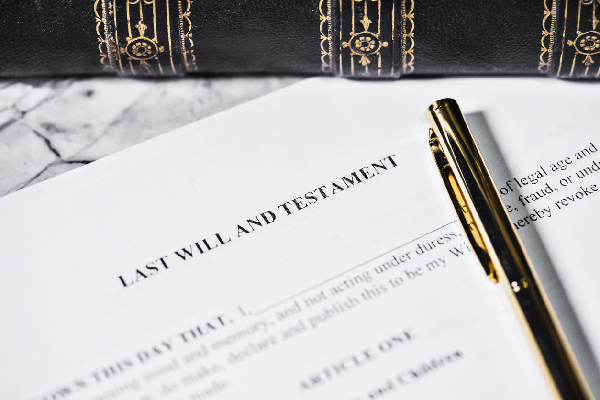
So, what happens if a will contest is successful? Ultimately, this will depend on a variety of factors. If the court agrees that the will is invalid, it is likely that it will be thrown out. If an earlier will exists, that will may be used in its place instead. Alternatively, if no earlier will exists, the estate's assets could be distributed by the court in accordance with the state's intestacy laws. Of course, even if a challenge to a will is successful, other beneficiaries could appeal, which could ultimately lead to a costly, drawn-out legal battle.
Can I Prevent a Challenge to My Will?
Considering that your will allows you to decide how your assets are distributed, take certain precautions. Fortunately, it is possible to reduce the risk of your will being contested. One of the best things that you can do to protect your will is to be careful drafting it. Make sure that all ambiguities are removed and that all legal formalities are followed. You can also discourage challenges to your will by adding a no-contest clause.
While a no-contest clause doesn't mean that no one can challenge your will, it disincentivizes challenges. No contest clauses then reduce the likelihood that one of your beneficiaries contesting your will.
One thing you can do to protect your will is to work with an estate planning attorney. An experienced attorney knows how to draft an estate plan that is less vulnerable to challenges. They can help you to decide which estate planning options will best protect your family.
Conclusion
Feel free to contact us to learn more about the benefits of working with an attorney when creating your estate plan.
For more information please request a copy of our Legal Services Schedule (PDF format).
![]()
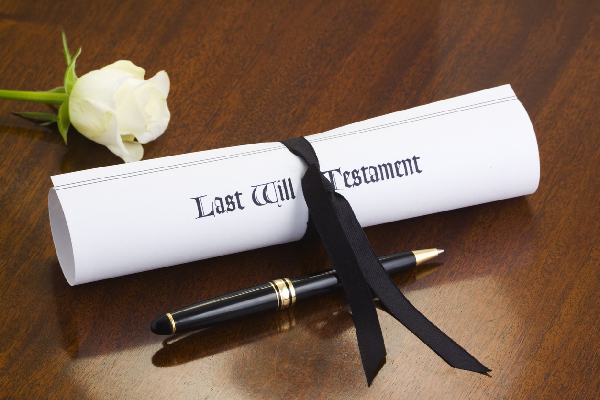
When starting the estate planning process, you may find yourself feeling unsure where to start. What do you need to know in order to ensure proper handling? Even something as seemingly simple as creating a will can lead to a great deal of confusion. You are not alone then if you feel overwhelmed by the estate planning process. Here is a look at answers to the most frequently asked questions about wills.
What Is a Will?
While most people know that wills help to name heirs and distribute assets in the event of one's death, you may find yourself wondering what exactly a will is. Essentially, a will is a legally binding document that sets an individual's wishes about asset distribution. A person who makes a will is referred to as a testator. In their will, a testator outlines their property, assets, debts, and distribution. Recipients of assets in a will (called beneficiaries) often include spouses, children, grandchildren, and charitable organizations.
A will is often part of a larger estate plan, as testators will also often include documents in their estate plan that name guardians for minor children and that provide healthcare directives on how they want to be cared for should they become incapacitated. If someone dies without a will or any kind of estate plan in place, this is called dying intestate. When someone dies intestate, their assets are distributed in accordance with their state's intestacy laws. A will then plays a key role in your estate plan by ensuring that you have a say in how your assets are divided.
What If I Change My Mind?
Preparing a will tends to be overwhelming. You have to choose beneficiaries for your estate and decide how to distribute your assets. Many people find themselves wondering if they are making the right decisions, and you may feel particularly uncertain if you are young and still plan on having a family. Fortunately, wills are fairly easy to change or revoke down the road.
Revoking a will is as easy as creating a new will; all you need to do is make sure that your attorney inserts language stating that this will revokes any prior wills. Of course, if your will only requires minor changes, amend or alter it with a codicil. This makes a will a great option if you need to make changes to your estate plan. For example, in the event that you have a child, wills are extremely easy to amend and revoke.
When Do You Update a Will?
Considering it is fairly straightforward to amend or revoke a will, continue to update it throughout your life. The fact is that your circumstances will change over the years, and major life events may require you to update your will. For instance, you may need a new will if you start a business, buy a house, or get a divorce. It is important that you do not forget about your will after creating it, as continued updates will be critical in order to ensure that all of your major assets are covered in your estate plan. For this reason, it is a good idea to re-evaluate your will every 3-5 years.
What Are the Benefits of a Will vs a Trust?
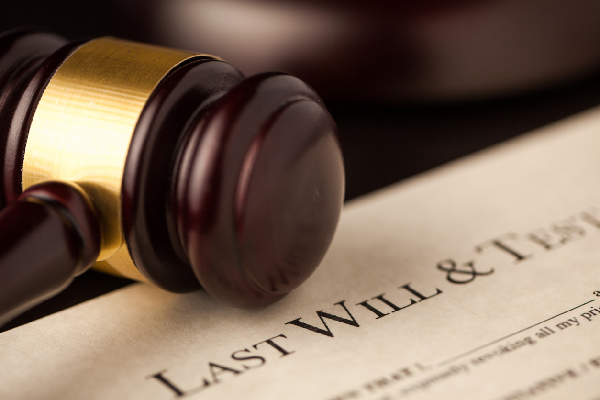
When estate planning, you may find yourself wondering what benefits a will provides over a trust. While you have likely heard that trusts are often a better option as they can help to keep your estate out of probate, not everyone needs a trust. The fact is that if you do not own property or any major assets, a will may be enough. In cases where someone has a simple estate, wills are often preferred. However, depending on the complexity of your estate, you may actually benefit from having both a will and a trust. This ensures assets protection.
What Is a Pour-Over Will?
Even if you choose to have a trust as your primary estate planning document, you may hear people suggest that you also include a pour-over will in your estate plan. Yet, you may find yourself wondering what a pour-over will is. Ultimately, while a trust can be preferable, it is not always feasible to transfer all of your assets into your trust. A pour-over will is then an essential component of any estate plan that includes a trust.
A pour-over directs the executor of your will to "pour over" any assets not included in your trust. While pour-over wills still have to pass through probate, they ensure that all of your assets end up in your trust upon your death.
How Do I Know If a Will is Right for Me?
Wills are one of the most common estate planning documents, as they are simple to create and easy to change. However, the fact is that they are not for everyone. People with large estates and/or those who worry about the probate process may find a living trust to be a better primary estate planning option.
Yet, you may find yourself wondering which estate planning option is right for you. Ultimately, work with an estate planning attorney to discuss your unique needs to determine what options work best for you.
Contact us to learn more about your estate planning options as well as to find out how we can help guide you through the estate planning process.
For more information please request a copy of our Legal Services Schedule (PDF format).
![]()
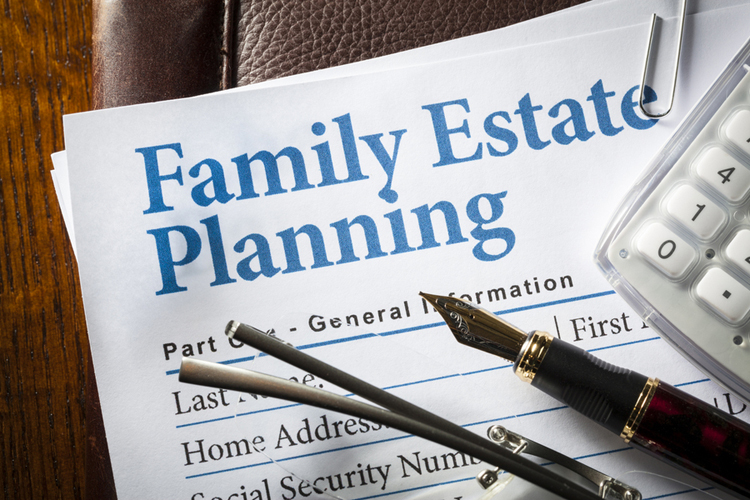
Estate planning ensures that people follow your final wishes and protect your family. However, it can be a confusing process as many people are unsure what an estate is, what it entails, and whether or not they even need one.
Ultimately, most families can benefit from the peace of mind that an estate plan provides. Not only will one ensure that your assets are distributed according to your wishes once you are gone, but an estate plan can also help reduce stress for your beneficiaries by helping to keep your estate out of probate.
Of course, it is understandable if you find yourself confused or overwhelmed as you create one. Here is a look at answers to a few of the most frequently asked questions about estate planning.
Do I Need an Estate Plan?
One of the most common questions people ask is whether or not they really need an estate plan. Unfortunately, there is often a misconception that only rich people need to worry about estate planning. However, regardless of the size of your estate, creating a plan makes things easier. Additionally, creating one ensures that you dictate your asset distribution. Without a proper plan, it will be up to a judge to decide how to distribute your assets.
Can an Estate Plan Protect Minor Children?
It is particularly important that anyone with minor children creates an estate plan. Create a plan for your children's futures should the unthinkable happen while they are underage. With a plan, make arrangements for who will care for your children should you die unexpectedly. Were you to die without a plan or guardianship designation, it would be up to the court to decide who should raise your children. This may result in your children being cared for by someone who may not raise them as you would like. Creating an one is then critical as it allows you to have a say in how your children will be cared for should you die unexpectedly.
What Happens If I Die Without One?
You may find yourself wondering what exactly happens to your estate if you die without an estate plan in place. Should you die with no estate plan, your estate will be subject to your state's intestacy laws. This requires your estate to pass through probate court so that your assets distributes to your legal beneficiaries.
Probate is a long, drawn-out, expensive process in which a judge distributes your assets. Without an estate plan, you will have no control over how your assets are distributed, as a judge will distribute your assets as they see fit in accordance with state law. This could potentially mean a large portion of your estate going to an estranged relative you no longer talk to.
Only assets that will be passed on by beneficiary designation or joint tenancy will avoid the probate process if you do not have one in place. Creating one gives you control over how your assets are divided. Further, it makes things easier for your beneficiaries. With a well-crafted estate plan, much of your estate can bypass the probate process. This saves your beneficiaries time and money, and reduces their burden during an already difficult time.
What Does a Plan Include?
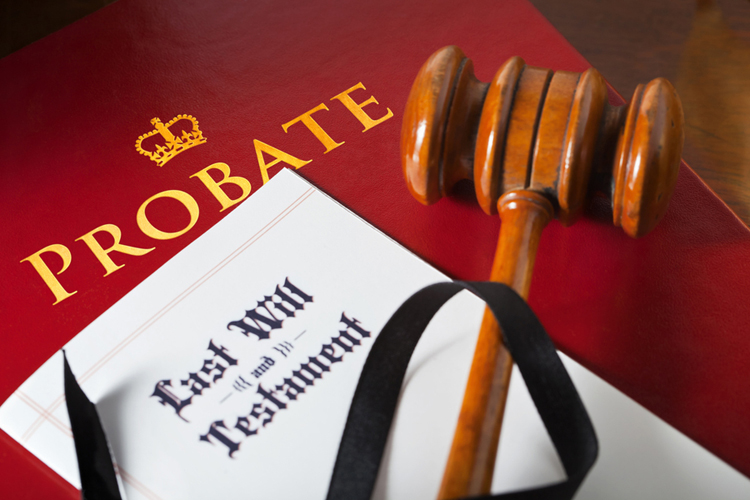
Another common question people ask is "what does an estate plan include?" Many people use this term and "will" interchangeably, but they are two very different things. While a comprehensive plan can include a will, a well-planned estate should include a variety of documents that ensure that your affairs are in order should you fall ill, become incapacitated, or die unexpectedly. While every plan will be different depending on an individual's unique needs, most include:
- A Will or Living Trust
- A Pour-Over Will -- To cover any assets not included in a trust.
- Guardianship Documentation -- To ensure your minor children receive care.
- An Appointment of a Financial Power of Attorney -- A trusted person who will take care of your financial affairs should you become incapacitated.
- An Advanced Healthcare Directive -- Naming a person to make medical decisions on your behalf, and outlining instruction on what to do, if you are near death or suffering from a terminal illness.
Ultimately, what you should include in your estate plan will depend on your family's needs, and an experienced attorney can help you to determine what your plan should include.
When to Start?
There is often confusion surrounding when the right time is to start thinking about estate planning. While no one wants to think about their own death, it is never too soon to plan for the future. In fact, it is critical regardless of how old you are if you have minor children, or you own significant assets and property that need protecting. This ensures protection for your family.
Can I Create a Plan on My Own?
With numerous online resources available, you may be tempted to create a plan on your own. While many states allow residents to prepare wills and estate plans on their own, it is risky. The fact is that estate planning can be extremely complicated, and you only have one chance to get everything right. The last thing you want is to unknowingly make a mistake that could invalidate your plan after your death. Working with an experienced attorney ensures a well-designed estate plan to protect you, your family, and your assets.
If you are considering starting the estate planning process, feel free to contact us to learn more about the benefits of working with an estate planning professional to guide you through this complex process.
For more information please request a copy of our Legal Services Schedule (PDF format).
![]()
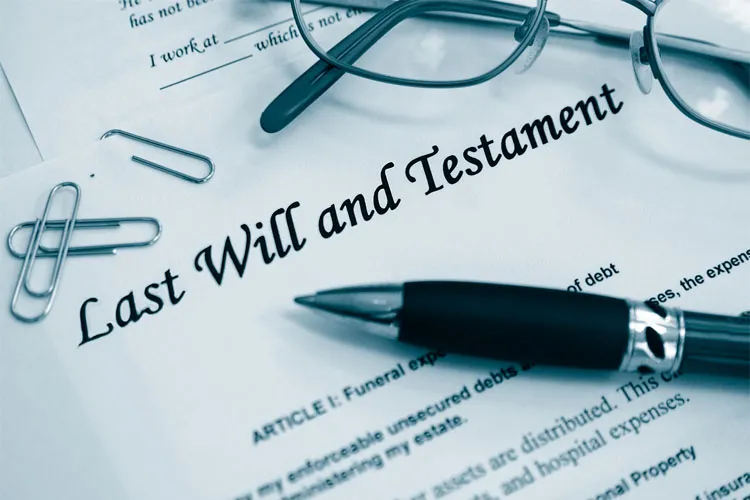
If you were named executor in someone's will, or the court appointed you to act as executor of an estate, you may be uncertain how you should proceed and have some question that only a probate lawyer may be able to answer, particularly if the estate will be passing through probate court. This is understandable, as probate can be a complicated, lengthy, and stressful process. One of the first pieces of advice that you will likely receive is to find a good probate attorney, if you do not already have one. While the executor of an estate has a responsibility to oversee the distribution of the estate's assets to its beneficiaries, an executor does not have to go through this alone.
Hiring a probate attorney can be beneficial by giving you support and guidance during this difficult time. However, if you are unfamiliar with probate, you might find yourself wondering what probate is. What does a probate attorney do? How will you know if you should consider consulting an attorney? To help you during this difficult time, here is a look at answers to a few of the most common questions we receive about hiring a probate attorney.
What Is Probate?
The first question people often have when handling a loved one's estate is "what is probate?" Essentially, probate is a legal process that takes place after a person's death to oversee the distribution of their assets. This process ensures that an individual's final debts are paid and that their assets are fairly distributed. While estate laws can vary from state to state, probate generally involves paperwork and court appearances. Any court fees or lawyer's fees accrued during the probate process are paid by the estate before its remaining assets are distributed to beneficiaries.
If a will exists, the probate process includes property distribution according to the directions in the will. During court proceedings, a probate judge will ensure that the will is authentic, and they will make sure that the directions within it are carried out properly. Probate becomes more complicated if no will exists. In this case, the probate judge ensures that the assets within the estate are distributed properly. Depending on the complexity of the estate, the probate process can become overwhelming, which is why many executors choose to hire a probate lawyer.
What Is a Probate Attorney?
You may next find yourself wondering what a probate attorney is, and how they differ from other types of lawyers. A probate attorney, also known as an estate attorney, is a state-licensed attorney who helps executors and beneficiaries manage the probate process. Many probate attorneys also handle the estate planning process. Thus, they help individuals draft wills, establish living trusts, and serve as an executor of an individual's estate. Estate attorneys can be indispensable in helping families navigate the complex probate process, particularly in situations where no will exists, or when disputes arise amongst beneficiaries.
What Does a Probate Attorney Do?
So what exactly does a probate attorney do? A probate attorney's primary job is to advise and assist the executor of the estate throughout the probate process. Not only do they act as a guide for the executor, but they can also handle much of the probate administration process as well. A few common tasks a probate attorney may handle during the probate process include:
- Filing the Petition for Probate
- Appearing in probate court
- Helping to open an estate bank account
- Handling creditor claims
- Locating all of the deceased person's assets
- Obtaining appraisals for all of the estate's assets and real estate
- Preparing and filing all documents needed by the court
- Managing the estate's finances (Including ensuring that all of the deceased's final bills and debts are paid.)
- Managing estate taxes
- Overseeing the sale of any estate property
- Settling disputes between beneficiaries
- Distributing the estate's assets amongst beneficiaries once the probate process is complete
- Closing the estate.
Ultimately, a probate attorney's goal is to make things as easy as possible for the executor. Having a great deal of experience handling estates and dealing with the probate process, estate attorneys can help to ensure that your loved one's final affairs are handled appropriately.
When Should You Consider Hiring a Probate Attorney?
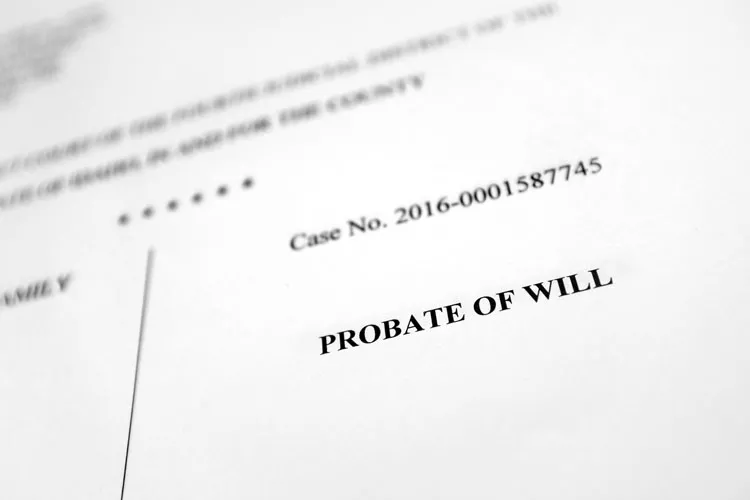
As you can see, a probate attorney can be invaluable in helping to guide you through the often-confusing probate process. Professionals often recommend that an executor at least consults a probate attorney to provide advice during the probate process. However, if the estate is small, you may find yourself wondering if you really need to hire a probate lawyer. While most executors can benefit from working with an attorney, here are a few indicators that you need the help of an experienced probate attorney.
Family Members Aren't Getting Along
While it is not common for people to contest wills, if family members are in dispute and someone is talking about suing, you should talk to an attorney as soon as possible. Probate lawsuits can tear families apart. However, an experienced probate attorney may be able to help you avoid a court battle.
The Majority of the Deceased Person's Assets Must Pass Through Probate
In some situations, certain assets may be able to be transferred to beneficiaries without probate court. For instance, assets held in joint tenancy, survivorship community property, or a living trust can bypass the probate process. If most of a person's assets will bypass probate, the probate process may be fairly simple. However, if the majority of a person's assets will need to go through probate, this complicates matters, and it could be helpful to consult an attorney.
There Are Insufficient Funds to Pay Debts
If a preliminary assessment of the estate leads you to believe that there aren't enough assets in the estate to pay debts and taxes, you will need to contact an attorney before you pay any bills. State law gives priority to certain creditors, and a probate attorney can help you to determine which debts to pay.
You Are Feeling Overwhelmed
Unless you have a lot of spare time on your hands, you may find yourself feeling overwhelmed trying to handle your loved one's estate in addition to your regular responsibilities. Hiring an attorney may be critical in helping you to take care of everything in a timely manner.
Learn More About Working With a Probate Attorney
Even if an estate seems simple, consulting an attorney ensures that the probate process goes quickly and smoothly. Having an experienced attorney to guide you through this difficult time can remove a burden from your shoulders, and give you peace of mind knowing that the probate process is being handled properly by a seasoned professional.
Feel free to contact us to learn more about probate law as well as to find out how we can help to support you during this difficult time. Working with a probate attorney can prove to be indispensable in ensuring that your loved one's estate is handled properly.
For more information please request a copy of our Legal Services Schedule (PDF format).
![]()
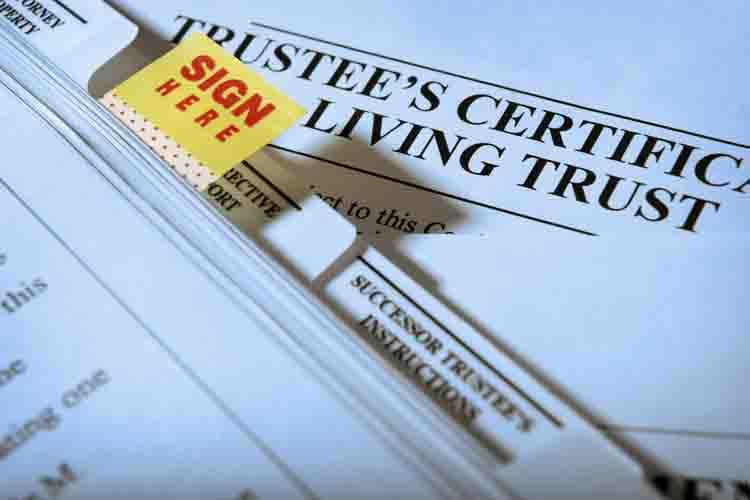
Many people consider it an honor to be chosen as the successor trustee of a loved one's trust. Someone who appoints you as the trustee means that your loved one saw you as a responsible individual. In fact, they trust to handle their estate once they were gone. While being chosen as an estate's successor trustee is an honor, it can also be considered a burden. There is a great deal of work that comes with handling someone's final affairs. A trustee has a fiduciary responsibility to act in an honest and impartial manner on the grantor's behalf. Even if the trustee is a beneficiary of the trust, they must ensure that the estate is handled according to the grantor's wishes.
Agreeing to become a trustee is a major responsibility. Indeed, it is important that you understand exactly what you are getting yourself into. It is critical that you research what a trustee is, and what you will be responsible for. To help get you started in making this important decision, here is a look at answers to the most common questions people have about what it means to be a trustee.
What Is a Trust?
If you are unfamiliar with estate planning, you may find yourself asking: "what exactly is a trust". A trust is a legal arrangement in which a trust's creator (grantor) transfers their property into a trust where it is held for their benefit during their lifetime. Property transferred into a trust is technically owned by the trust, but the grantor continues to benefit from the trust's property, assets, and any income it generates during his/her lifetime as the trust's primary trustee.
Upon the grantor's death, the assets in the trust transfer to the trust's beneficiaries as outlined prior to their death. A successor trustee distributes the assets within the trust designated by the grantor. Trusts are a popular estate planning option, as they often allow for assets to be seamlessly transferred to beneficiaries without the hassle of probate court.
What Is a Trustee?
Now that you know what a trust is, you may wonder what a trustee is responsible for. A trustee is an individual, usually an account, lawyer, or trusted friend/family member who is responsible for managing a trust. Oftentimes, a trust's creator acts as the primary trustee during their lifetime, but they also designate successor trustees who will take over the trust and manage/distribute their assets should they die or become incapacitated. The grantor names whomever they want as a trustee within limitations. For example, they must be at least 18 years old and not likely to become bankrupt or incapacitated.
Many grantors name multiple successor trustees to ensure someone manages their assets.
Payment for Trustees
Becoming a trustee is a big responsibility that requires a lot of work. Thus, it is understandable if you are wondering whether a trustee is compensated for their efforts. Yes! A trustee is paid an amount included in the trust or as directed by the court based on what is considered a "reasonable amount." The amount a trustee is entitled to will vary depending on a variety of factors including the value of the estate. However, when the trustee is also a beneficiary of the trust, or they are a close relative to the grantor, trustees will often choose to forgo their pay and take the job merely to honor the deceased.
Do I Have to Take the Job?
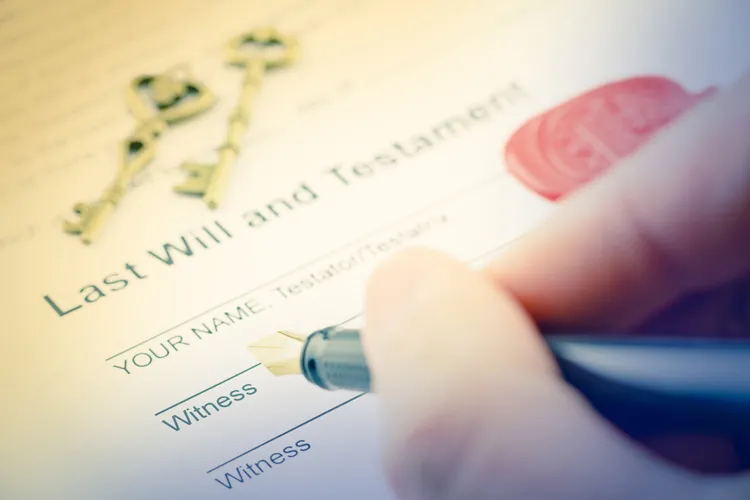
While honored to learn that they have been named trustee, the prospect of this job feels overwhelming. If you do not feel up to the task, or you simply do not have time, you may wonder if you are required to take on the job. Fortunately, the answer to this is no.
If you are named the successor trustee in a loved one's trust and you don't want to serve, you can formally resign. While it may sound odd to have to resign from a position you never agreed to, this is often a required step. You will also want to notify each of the trust's beneficiaries that you are resigning in writing. Also, notify the person identified in the trust as the next successor trustee, and hopefully, they take the job.
Can a Trustee Get Help?
Alternatively, you may feel you need aid in the task. Can you get help from others? Or does a trustee have to do everything alone? Fortunately, you are not expected to go through this difficult process alone. In fact, often, trustees are encouraged to seek professional help to ensure that everything is handled correctly. You can even use the trust's assets to pay for expert help.
As a trustee, find a good trust administration attorney to guide you through this process. Additionally, trust finances are often complex, and you should consider hiring an accountant to prepare the trust's tax return and provide advice on income tax issues that could be raised by selling and distributing the trust's assets. Also, consult a probate attorney if part of the estate will have to go through probate court.
Conclusion
Acting as a successor trustee for a loved one's estate can leave you feeling confused. Feel free to contact us if you have additional questions or concerns about what it means to be a trustee, as well as if you need guidance during this difficult time.
For more information please request a copy of our Legal Services Schedule (PDF format).
![]()

If you have been chosen to serve as executor of a loved one's estate, you may find yourself honored. However, you may also feel confused if you are uncertain what exactly being an executor entails. Being named the executor of an individual's estate is both a privilege and a burden as there is a great deal of work that comes with being an executor. Broadly speaking, an executor oversees the handling of the final affairs of a deceased individual including paying off their debts and distributing their assets in accordance with their will.
While the law does not require an executor to be a legal or financial expert, this position comes with a great deal of responsibility. An executor has a fiduciary duty to act in an honest, impartial, and scrupulous manner on another's behalf. It is then important that you truly understand what you are agreeing to take on before deciding whether or not to act as a loved one's executor. Take some time to research what an executor does and what exactly you will be getting yourself into before you make such an important decision. To help get you started, here is a look at answers to the most frequently asked questions we receive about what it means to be an executor.
What Is an Executor?
If you are unfamiliar with the term, you may first find yourself wondering what an executor is. The executor (also called a personal representative in some states) is a person named in a will or appointed by the court who is given the legal responsibility of taking care of a deceased person's remaining financial obligations. This generally includes taking care of the property, paying debts and taxes, and ensuring that assets are transferred to their new owners. If probate is required, it will also be the executor's responsibility to oversee the probate process or hire a lawyer to do so. Most executors are immediate family members, with spouses, children, parents, and siblings being common choices.
How Is an Executor Appointed?
An executor is typically named in the will by the testator. If a deceased individual had no will, the court will appoint an executor, and the assets within the estate will be distributed according to the state's intestacy laws. Many times, an individual will also name secondary executors in their will in case their preferred executor is unavailable, or unable, to serve at the time of their death.
Who Can Be an Executor?
As we previously mentioned, executors are most commonly close family members, and they are often beneficiaries of the will; however, this is not always the case. When choosing to name an executor in their will, some people prefer to choose someone not named in the will, such as a family friend, as they may be more neutral when fulfilling their role as executor. Of course, every state has legal requirements regarding who can execute a person's will. Most states require that an executor be at least 18 years of age, but some states require an executor to be 19 (Alabama and Alaska) or even 21 (Utah). Some state laws also require an executor to be a resident in the same state as the deceased.
Does an Executor Have to Serve?
While it is an honor to be named an executor in someone's will, it can also be an overwhelming prospect to be faced with. Whether you do not believe that you are qualified to serve, or you simply do not have the time to take on such a large responsibility at the moment, you may find yourself wondering whether you have to serve if you have been named executor in someone's will. Fortunately, you do not have to serve as executor if you do not feel up to the task.
When the time comes, an executor will be given the opportunity to accept or decline this responsibility. Furthermore, should you agree to serve as executor and realize that you are in over your head, you also have the right to resign your role as executor at any time. Should you refuse, or resign from, the position of executor, any alternative executors named in the will will take over. If no alternative was named, the court will appoint someone else to step in.
What Does an Executor Do?
As the legal representative of the estate, the executor has many duties and responsibilities that they must fulfill when taking care of the deceased's affairs. If you have been chosen as executor in a loved one's will and are unsure what your job will entail, here is a look at just a few of the responsibilities of an executor.
Determine Whether Probate Court Proceedings Are Necessary
One of the first duties of an executor will be determining whether or not the estate will need to go through probate court. While many estates that have a will and no trust will have to go through probate, there are exceptions. For instance, most jointly owned assets can pass to the surviving owner without probate. Furthermore, depending on state law, assets worth less than a certain amount of money may be able to go through a streamlined probate process rather than traditional probate court proceedings.
File The Will With the Local Probate Court
Next, it is critical that the executor gets a copy of the will and, after ensuring that they have read its contents, file a copy of the will with the local probate court. Even if formal probate proceedings won't be necessary, it is still usually required for a copy of the will to be sent to probate court. It is at this point that the executor should also start to determine who the estate's beneficiaries will be and how the estate will be divided.
Notify Others

It is also the executor's responsibility to ensure that others are made aware of the death of the testator. While this will include family and friends, it is particularly important that the executor contacts financial institutions and government agencies as well. This includes:
- Insurance Companies
- Banks and Credit Unions
- The Social Security Administration
- The Department of Veterans Affairs
- Medicare
- The Post Office
You will also need to ensure that all of the estate's beneficiaries have been made aware of the decedent's passing.
Set Up an Estate Bank Account
In the period immediately following the death of the decedent, there may be ongoing bills that need to be paid, or final paychecks that need to be received. It is then important that the executor sets up a bank account to handle these transactions. In particular, the executor needs to look out for and pay utility bills, mortgage payments, and homeowner's insurance until the estate has been settled.
Supervise the Distribution of Assets
Of course, one of the primary roles served by an executor is supervising the distribution of the deceased person's assets. The executor has a responsibility to distribute property in accordance with the will and/or as directed by probate court proceedings.
Does an Executor Get Paid?
Many people who serve as an executor choose not to receive compensation, as they take on the position out of respect for the deceased. However, an executor is entitled to payment by law, which is understandable considering that the role of executor is a large responsibility that requires a great deal of work. The amount that an executor will be paid depends on a variety of factors such as the value of the deceased person's estate. The exact amount is regulated by state law and is decided by the probate court based on what they consider to be a reasonable amount given the circumstances. In many cases, the executor will get paid as soon as the estate's debts are paid, before its assets are distributed. However, you may be required to seek court approval or wait until probate has ended in order to receive compensation.
Should an Executor Hire an Attorney?
Upon agreeing to act as executor for a loved one's estate, you may find yourself wondering whether you are required to consult an attorney. The fact is that there is no requirement that an executor works with an attorney, and as long as you are persistent and pay attention to tedious details, you likely won't even need much legal knowledge to act as an executor. While many estates go through probate, these estates are often simple to handle and involve no disputes. In such cases, the most complicated challenge you will face will be filling out paperwork. However, there are some circumstances where executors may find it to their benefit to work with an attorney. If the estate has many types of property, significant tax liabilities, or there are disputes amongst the inheritors, you may want to consider partnering with an experienced attorney.
Of course, if you agree to act as executor following the death of a loved one and you find yourself confused or overwhelmed at any time, do not hesitate to contact a lawyer. An experienced attorney can help answer all of your questions, and they can help walk you through this difficult time.
Feel free to contact us to learn more about what being an executor entails as well as to seek advice if you have been named executor in a will.
For more information please request a copy of our Legal Services Schedule (PDF format).
![]()

RUFADAA is a law that governs access to the online accounts of a user when that person loses the capacity to manage these accounts or dies. It guides fiduciaries and technology companies on how to handle the digital assets of deceased users and account holders. Fiduciaries are persons appointed by law to manage the properties of other persons and are subject to strict requirements to act in the principal's best interests.
The RUFADAA extends the power of fiduciaries beyond managing tangible assets to include the management of digital assets. It allows fiduciaries access to digital property, such as web domain, computer files, digital accounts, and electronic currencies. However, the act restricts fiduciary access to the client's electronic communication assets, such as text messages, email, and social media accounts unless the owner explicitly consented to fiduciary access through a trust, will, power of attorney, or other written record.
The Legal Problems Posed by Digital Assets
Most Americans have one form of digital asset or other that they use to communicate or perform basic tasks such as shopping or paying bills. Over time, people can accumulate many digital assets, such as account subscriptions and social media accounts without thinking about long-term management.
The problem is that until recently, there were very few laws that explicitly stated who could access these accounts and files in the case where the user died or became incapacitated. If the deceased or incapacitated person had wanted their digital assets to be modified, deleted, or shared among loved ones, it was hard to determine who had the legal right to access and manage them.
Unless the owner had shared the usernames and passwords, it would have been impossible for the fiduciary to access them. However, such access did not amount to legal authority and violated the custodian's terms of service, which did not permit the transfer of ownership.
Consequently, most digital assets were often deleted by the custodians or would continue to exist on the internet long after the owner had died or become incapacitated. Such assets would remain inaccessible to the family and associates of the deceased owner.
This vacuum in the law caused suffering to the relatives of deceased persons who wanted to access cherished items that were part of the deceased's online legacy. It also caused problems to the people charged with the responsibility of wrapping up the deceased's estate. In most cases, family members would endure delays, frustrating pushbacks, and even loss of valuable assets or information due to the protracted legal framework. This prompted the Uniform Law Commission (ULC) to begin developing a legal code that would address this problem in 2012.
Who Created the RUFADAA?
The RUFADAA is a legal framework developed by the ULC to provide fiduciaries, such as attorneys-in-fact and executors with a legal framework, to manage the digital assets of incapacitated or deceased principals. The legal practitioners at the ULC wanted states to adopt the act as a guide to be used within their jurisdictions. Several states have already enacted the law or are in the processing of ratifying it.
The RUFADAA confers fiduciaries with limited powers to control digital assets on behalf of the principals. The act also provides privacy protections for the owners of the digital assets and legal protections for the custodians. Further, the custodians are primarily tech companies that create, manage, and store digital assets on behalf of clients. It was hard for the ULC to balance between the interests of the principals, the fiduciaries, and the custodians. They created the first draft that failed to resonate with the state authorities and had to revise it to produce a draft law whose provisions minimally satisfy the interests of all parties.
The UFADAA First Draft
The preliminary form of the fiduciary access law was called the Uniform Fiduciary Access to Digital Access Act (UFADAA) and was completed in 2014. The makers of the UFADAA thought it was wise to grant estate agents and executioners the same access to the principal's or decedent's digital assets as they had with a traditional property. This meant that the owners could decide what to do with their digital assets in the same way they do with other assets and that fiduciaries could take control once the owner becomes incapacitated or died.
The UFADAA provided that the executioner or personal representative could have the same rights to the principal's personal accounts as the deceased had when alive or mentally sound. This implies that if the fiduciary wanted the deceased's passwords or login details, they could ask the custodian to grant access, and the company would be obliged to comply. This arrangement would have given executors access to digital assets that would have enabled them to wrap up the deceased's assets expeditiously. They could use the access to archive emails, delete photos, modify or delete social media accounts, cancel subscriptions, and pay final bills before closing or modifying accounts.
However, the UFADAA attracted strong opposition from tech companies and privacy advocacy groups. They argued that most of the provisions of the act contravened privacy and liability laws. In particular, granting executors access to the deceased's digital assets would:
- Violate the dead person's privacy in ways that the deceased would not have envisaged or accepted.
- Contravene the privacy of third parties who may have communicated or shared information with the account owner
- Constitute a dereliction of duty by companies that had promised to keep user accounts secure
- Misappropriate digital property, which differs substantially from traditional assets under the care of executors.
- Violate the privacy provisions in the federal law
The tech companies also noted that several provisions in the UFADAA contravened federal privacy laws as well as federal and state computer fraud laws. They also observed that the UFADAA had effectively overwritten the terms of service agreements (TOSAs) that users consent to when opening new digital assets accounts. Most TOSAs explicitly state that digital assets are not transferable and create strong mechanisms for preventing unauthorized access to user accounts. The UFADAA would have given executors unfettered access to principal's accounts, which is contrary to TOSA.
Further, the UFADAA's attempt to treat digital assets in a similar manner to traditional assets raised the issue of personal privacy. Privacy advocacy groups noted that people have different expectations of digital assets than traditional assets. For instance, principals would have expected executors to access physical files in drawers but may have been reticent to allowing other people to see email messages or photos stored online.
In 2015, the UFADAA was proposed by state lawmakers in several states, but most states succumbed to pressure from tech companies and privacy advocacy groups. Consequently, only Delaware enacted the original law. This turn of events forced the ULC to revise the proposed digital assets law.
The Revised UFADAA or RUFADAA

The RUFADAA provides a hierarchy of instructions on how the deceased's digital assets should be managed in case the fiduciary seeks access. It requires custodians to create an 'online tool' that acts as a digital power of attorney, specifying who has control or access to a specific site if the user dies or becomes incapacitated. The act also provides a legal framework on how digital asset rights will be stated in traditional legal documents such as wills or trusts. It is only in the absence of the online tool or legal document that the custodian's TOSAs takes control.
The revised law differs from the UFADAA in that it substantially reduces the ability of an executor to access the principal's digital assets. The main changes include:
- The executor no longer has access to the content of electronic communications such as tweets and private email unless the deceased principal explicitly consented to the disclosure.
- Executors can access the other categories of digital assets but must first obtain a court petition and explain to the court why they need the asset to wrap up the deceased's estate.
- If the executor lacks explicit permission to access the digital assets through a trust, will, or power of attorney, the custodians can refer to the TOSAs to determine if they have the discretion to comply with the request for access to the deceased user's personal accounts.
- Custodians now have several ways of preventing fiduciaries from accessing user accounts. They can demand court orders or charge fees for complying with access requests. Companies can also limit compliance to a minimum by providing access to only those assets that are absolutely necessary for wrapping up the principal's assets or reject unreasonable and burdensome requests.
- Custodians are not obliged to grant access to joint or deleted accounts.
The Future of RUFADAA
It is likely that RUFADAA will be endorsed by most states as over 40 states have already adopted it. The Fiduciary Access to Digital Assets Act, Revised page on the ULC website provides an enactment map that you can use to check if your state has ratified the law. Even though the RUFADAA has clarified how to handle digital assets after a person's death, hiccups are expected when implementing the law. That is why you should state explicitly in the power of attorney or will if you want your fiduciary to access your digital assets.
Please contact our office for a free consultation regarding your digital assets.
For more information please request a copy of our Legal Services Schedule (PDF format).
![]()

